Bolivian Right Eyes Return In Elections Marked By Economic Crisis
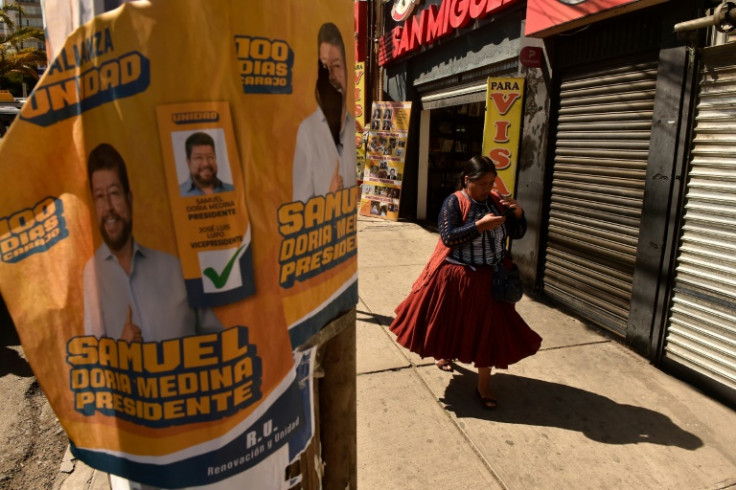
Bolivians expressed hopes of change on Sunday as they voted in elections shaped by an economic crisis, which has given the right its first shot at power in 20 years.
The Andean country is struggling through its worst crisis in a generation, marked by annual inflation of almost 25 percent and critical shortages of fuel and foreign exchange.
Polls show voters poised to punish the ruling Movement Towards Socialism (known by its Spanish acronym MAS), in power since Evo Morales was elected Bolivia's first Indigenous president in 2005.
"We're experiencing a tremendous crisis so we need a change," Alicia Vacaflor, a 62-year-old importer of industrial machines, told AFP after voting in the biting cold at a school in central La Paz.
Karla Coronel, a 46-year-old market analyst, agreed on the need for a new direction.
"Socialism has brought us nothing good," she declared.
More than 7.9 million Bolivians are eligible to vote Sunday, choosing between eight presidential candidates as well as electing 166 members of Bolivia's bicameral legislature.
Center-right business tycoon Samuel Doria Medina and right-wing ex-president Jorge "Tuto" Quiroga are the favorites to succeed Morales's unpopular successor, Luis Arce, who is not seeking re-election.
Polls showed Doria Medina, 66, and Quiroga, 65, neck-and-neck on around 20 percent, with six other candidates, including left-wing Senate leader Andronico Rodriguez, trailing far behind.
A run-off will take place on October 19 if no candidate wins an outright majority.
The two frontrunners have vowed radical reforms to Bolivia's big-state economic model if elected.
They want to slash public spending, open the country to foreign investment and boost ties with the United States, which were downgraded under the combative Morales, a self-described anti-capitalist and anti-imperialist.
"Today is a very important day for Bolivians because through voting we can emerge from this economic crisis peacefully, democratically," Doria Medina told the press after voting at a polling station in La Paz.
Agustin Quispe, a 51-year-old miner, accused both the left and right of failing to advance "new ideas."
Branding Doria Medina and Quiroga, both of whom are on their fourth run for president, "dinosaurs," he said he supported centre-right candidate Rodrigo Paz.
Analysts say the election resembles that of Argentina in 2023, when voters dumped the long-ruling leftist Peronists and elected libertarian candidate Javier Milei in a bid to end a deep economic crisis.
"What people are looking for now, beyond a shift from left to right, is a return to stability," Daniela Osorio Michel, a Bolivian political scientist at the German Institute for Global and Area Studies, told AFP.
Unlike Milei, who was a political newcomer, Doria Medina and Quiroga are experienced candidates.
Doria Medina, a millionaire former planning minister, made a fortune in cement before going on to build Bolivia's biggest skyscraper and acquire the local Burger King fast food franchise.
Seen as a moderate, he has vowed to halt inflation and bring back fuel and dollars within 100 days, without cutting anti-poverty programs.
The tough-talking Quiroga, who trained as an engineer in the United States, served as vice-president under ex-dictator Hugo Banzer and then briefly as president when Banzer stepped down to fight cancer in 2001.
"We will change everything, absolutely everything after 20 lost years," he trumpeted during his closing rally in La Paz on Wednesday.
Bolivia enjoyed more than a decade of strong growth and Indigenous upliftment under Morales, who nationalized the gas sector and ploughed the proceeds into social programs that halved extreme poverty.
But underinvestment in exploration has caused gas revenues to implode, falling from a peak of $6.1 billion in 2013 to $1.6 billion last year.
With the country's other major resource, lithium, still underground, the government has nearly run out of the foreign exchange needed to import fuel, wheat and other key commodities.
Bolivians have repeatedly taken to the streets to protest against rocketing prices and hours-long waits for fuel, bread and other basics.
Morales, who was barred from standing for a fourth term, has cast a long shadow over the campaign.
The 65-year-old has called on his mostly rural Indigenous supporters to spoil their ballots over the refusal by electoral authorities to allow him to run again.
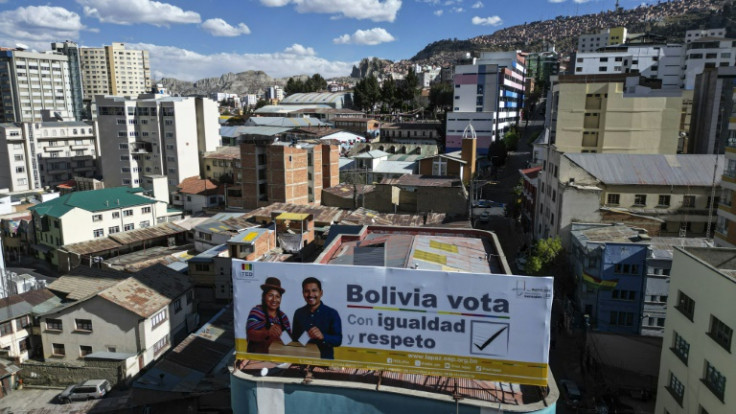
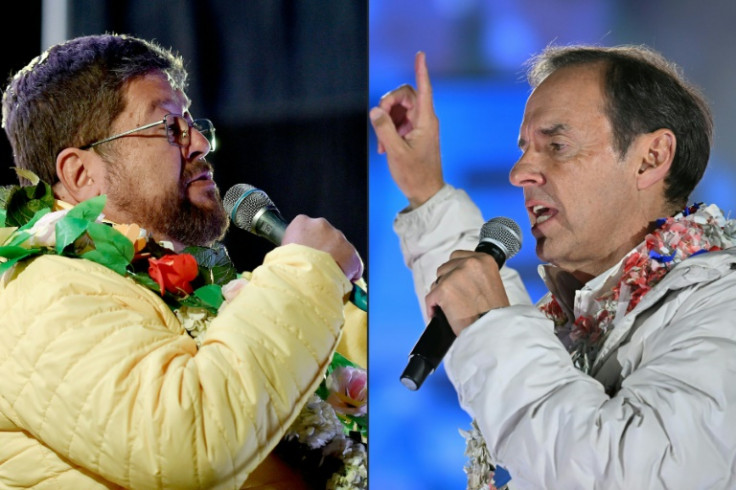
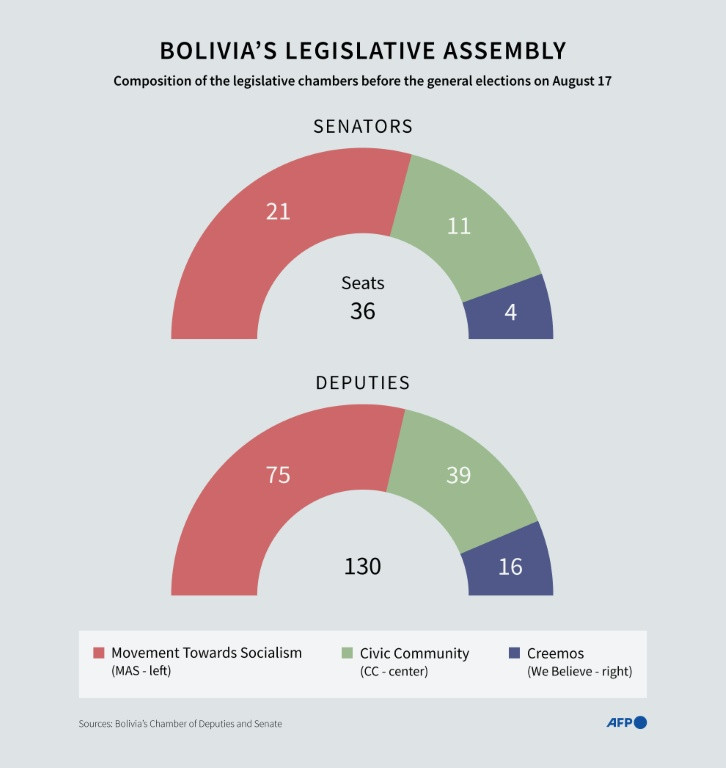
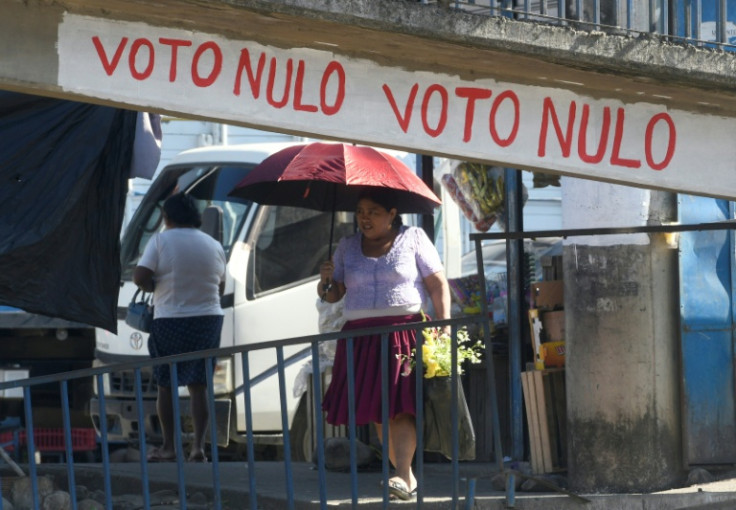
© Copyright AFP 2025. All rights reserved.





















